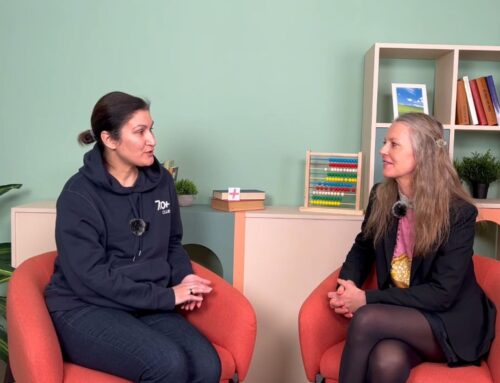You’ve come a long way in improving your English skills, and the world of education, career, and lifestyle opportunities for English speakers now awaits you. All you need is a certification—and you need to decide between a TOEFL vs. IELTS certificate—to unlock these opportunities.
But which one should you choose? The answer is simple! Suppose you’re applying to a US university. In that case, the TOEFL is your best bet. At the same time, the IELTS is your go-to if you’re seeking general use, academic branches, employment, or visa purposes. With the increasing recognition of both certifications, the choice ultimately comes down to your strengths.
So, consider all the factors and thoroughly examine what to expect before deciding. Remember, you’ve got this!
Learn the difference between TOEFL and IELTS
What is the IELTS test?
So, let’s chat about the IELTS, aka the International English Language Testing System. It’s like the rockstar of English proficiency tests these days! Here’s a rundown:
First, you’ve got three main players behind the scenes: The British Council, IDP: IELTS Australia, and Cambridge Assessment English. They’re the ones making sure everything’s legit.
Now, there are three versions of the test: Academic, General Training, and Life Skills. Academic is for those looking to study in English-speaking countries, while General Training is more for everyday English skills needed at work or for migration. Both tests have a similar vibe, but they cater to different situations. Oh, and if you’re UK-bound, there’s a special IELTS Life Skills version just for you! This test, approved by the UK government, focuses solely on your English speaking and listening skills. Perfect if you’re eyeing visas like family, spouse, or partner extensions or aiming for indefinite leave to remain or citizenship in the UK.
IELTS academic test sections & test time
Here’s the breakdown for IELTS:
- Listening (30 minutes)
- Reading (60 minutes)
- Writing (Task 1: 20 minutes, Task 2: 40 minutes)
- Speaking (11–14 minutes)
- Total test time: 2 hours and 45 minutes
When it comes to academic scoring, you’ll be graded from 1 to 9 in each section. Think of 1 as “just started learning” and 9 as “Wow, you sound like a native speaker!” There is no official passing score, though—it depends on where you’re applying. Universities usually look for scores between 6 and 7.5, but migration is more complicated. Fun fact: IELTS scores are rounded off to the nearest 0.5, meaning a score of 6.75 gets upgraded to 7.0!
Want to find out what a good IELTS score is and how you can get it? Read more here.
If you want to take the full test, you have to go to a test center. There are over 1,600 test centers. Find your nearest one here. So there you have it—a quick rundown of the IELTS in a friendly, easy-to-digest format!
What is the TOEFL test?
Let’s dive into the world of TOEFL, the go-to test for measuring English proficiency, especially if you’re eyeing colleges in the US! Here are some cool tidbits:
First, one main player behind the scenes is the Educational Testing Service (ETS). They’re the folks running the show when it comes to the TOEFL.
While TOEFL is prominent for US admissions, it’s also accepted by over 11,000 colleges in 150+ countries worldwide. Talk about versatility! Plus, it’s the go-to for UK universities and some in Australia, Canada, and New Zealand.
Regarding visa applications, TOEFL is less common than IELTS, but it’s gaining traction. For instance, as of 2020, skilled migration visas in Australia and New Zealand have been accepted.
TOEFL iBT test sections & test time
- Reading: 35 minutes, 20 questions
- Listening: 36 minutes, 28 questions
- Speaking: 16 minutes, 4 tasks
- Writing: 29 minutes, 2 tasks
- Total test time: under 2 hours
There is an online version: the TOEFL iBT, which can be taken at an authorized test center, or the TOEFL iBT Home Edition with a proctor.
When it comes to TOEFL iBT scores, each section has a score range of 0–30. Then, these are added together for a total score of 0–120. Now, here’s the thing: every university has its own score requirements, and some might even want specific scores for each skill.
Oh, and here’s a fun fact: your TOEFL iBT scores are good for 2 years after you take the test. And like with IELTS, there’s no set passing score—it varies depending on the institution. So be sure to check out what your dream college requires!
TOEFL vs. IELTS: Which test should you take?
TOEFL vs. IELTS pros and cons? No worries, we’ve got your back! Here are some questions to help you make the call:
- What does your dream institution prefer? Check out their website or email them to find out their preferences. Sometimes, they might have other options, too!
- What’s the norm in your field? If your institution doesn’t have a preference, see what’s commonly accepted in your industry. Generally, US colleges lean towards TOEFL, but it’s always good to double-check.
- Play to your strengths! Think about which format suits you best. With TOEFL, you’ll speak into the microphone, and your responses will be recorded. However, with IELTS, it’s more personal—your spoken English gets assessed by a real person in a private room. Plus, you can even ask the examiner questions if anything’s unclear.
- Practicality matters! Consider which test is easier for you to access. IELTS has more testing facilities, making it convenient for many. But if you’re far from the city, TOEFL’s online option might be your go-to.
- Handwriting or typing? Both tests offer computer-based options, but IELTS also lets you write with pencil and paper. If you’re more comfortable typing, keep in mind that both tests use English keyboards!
Still undecided? If you’re eyeing opportunities outside the US, IELTS has been gaining popularity worldwide. So, why not give it a shot?
Prepare for the IELTS with personalized tutoring
If you aim to ace the IELTS or TOEFL test in one go, you should consider 1-on-1 online lessons with a specialist tutor. These tests are expensive and time-consuming, and you would want to avoid retaking them. With an IELTS private tutor by your side, you can save money, time, and a lot of stress. A friendly expert will cheer for you to succeed and help you at every step. They’ll assess your progress, evaluate your practice tests, and guide you on which skills you need to work on. They’ll also provide useful hints and resources that have helped other students achieve their test ambitions.
Check out 700+Club’s IELTS courses or IELTS learning platform, and you’ll be surprised at how affordable great exam prep specialists can be. With the right guidance and support, you can confidently take on these tests and achieve your desired score.








